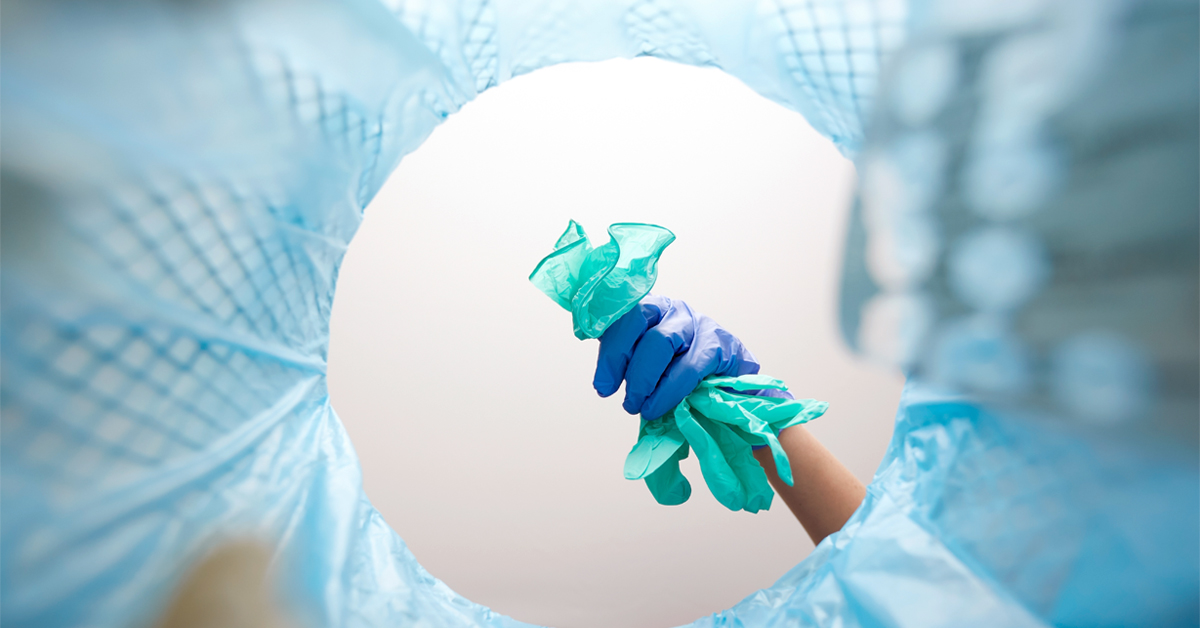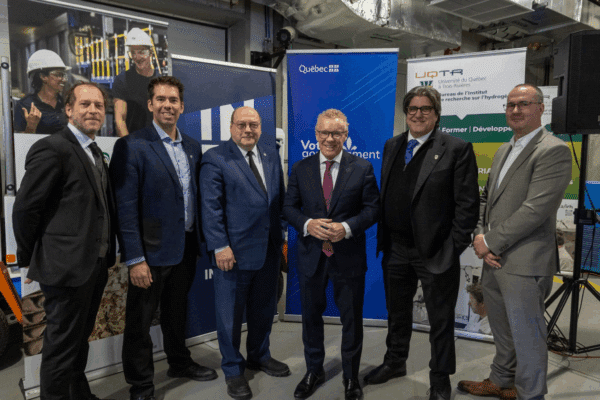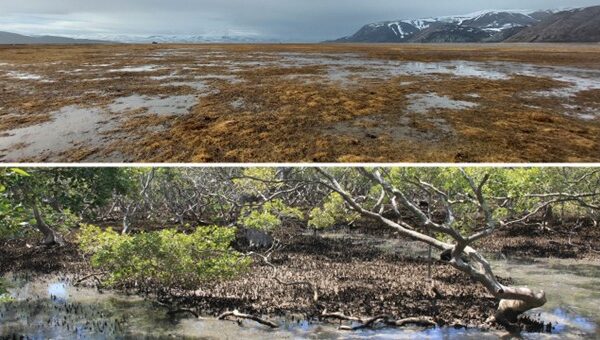- Science and Society
-
YOU ARE
- Community member
- Future Student
- Student
- Professor
- Alumni
- Media
- Guidance counsellors
- INRS retiree
- Contact Us
- Newsroom
- Careers
- FR
-
Studies
We teach the next generation of researchers to develop scientific, social, and technological innovations.
-
Research
We find solutions through interdisciplinary research and industry or public and community partnerships.
-
INRS
We play an active role in Québec's economic, social, and cultural development.
A team of students from INRS received funding for the recycling of plastic gloves.

Whether they are made of latex, nitrile or vinyl, laboratory gloves represent a major source of plastic waste. A team of students from the Eau Terre Environnement Research Centre (ETE) of the Institut national de la recherche scientifique (INRS) is taking matters into their own hands by starting a project to salvage these plastic consumables.
The initiative comes from Christophe Langevin, Emily Hallett, Aurélie Beaulieu-Laliberté and Martial Leroy, with the support of Professor Jérôme Comte’s team and the management of the ETE Centre. Their project is funded by the Ministère de l’Enseignement supérieur and the Secrétariat à la jeunesse, as part of a call for applications for projects related to climate change.

A second life…
The team of students reminds us that, although the use of plastic gloves in the laboratory is necessary and mandatory, their duration never exceeds a few hours. Yet these items will take a hundred years to degrade in a landfill, or end up in an incinerator.
“We’re trying to solve environmental issues in the lab, but we’re using a lot of plastic to do it. This recycling project ties in with our team’s values by giving gloves a second life.”
– Christophe Langevin, master’s student in water science
With this recycling project, the gloves are transformed, by the company Go Zero, into plastic pellets that will be reused by other businesses. “Our gloves will become gym equipment, play modules and even agricultural mats for the animals’ comfort!” reports Christophe Langevin.
… all the way to the fingertips
Some 50 recycling boxes will be installed in the ETE Centre’s laboratories, but also at the INRS Laboratory for Scientific and Technological Innovation in Environment (LISTE), in the Québec Metro High Tech Park.
These collection boxes are manufactured by the local company Cartonek, whose mission is to integrate people living with functional limitations into the labour market. These custom ordered boxes are resistant and have a long life span. They are also easy to transfer into the main collection bag at the ETE Centre. This bag allows the waste to be shipped in bulk through UPS carbon neutral, thus limiting their ecological footprint by offsetting the carbon dioxide emissions produced.
For now, only the ETE Centre and the LISTE are covered by this initiative. If refinanced, the team would like to implement this project at the other centres. “We could serve as an advisory committee to support similar initiatives at INRS,” says Christophe Langevin. “Little by little, we will succeed in limiting the amount of plastic waste in the laboratory.”
You may also like
Share



